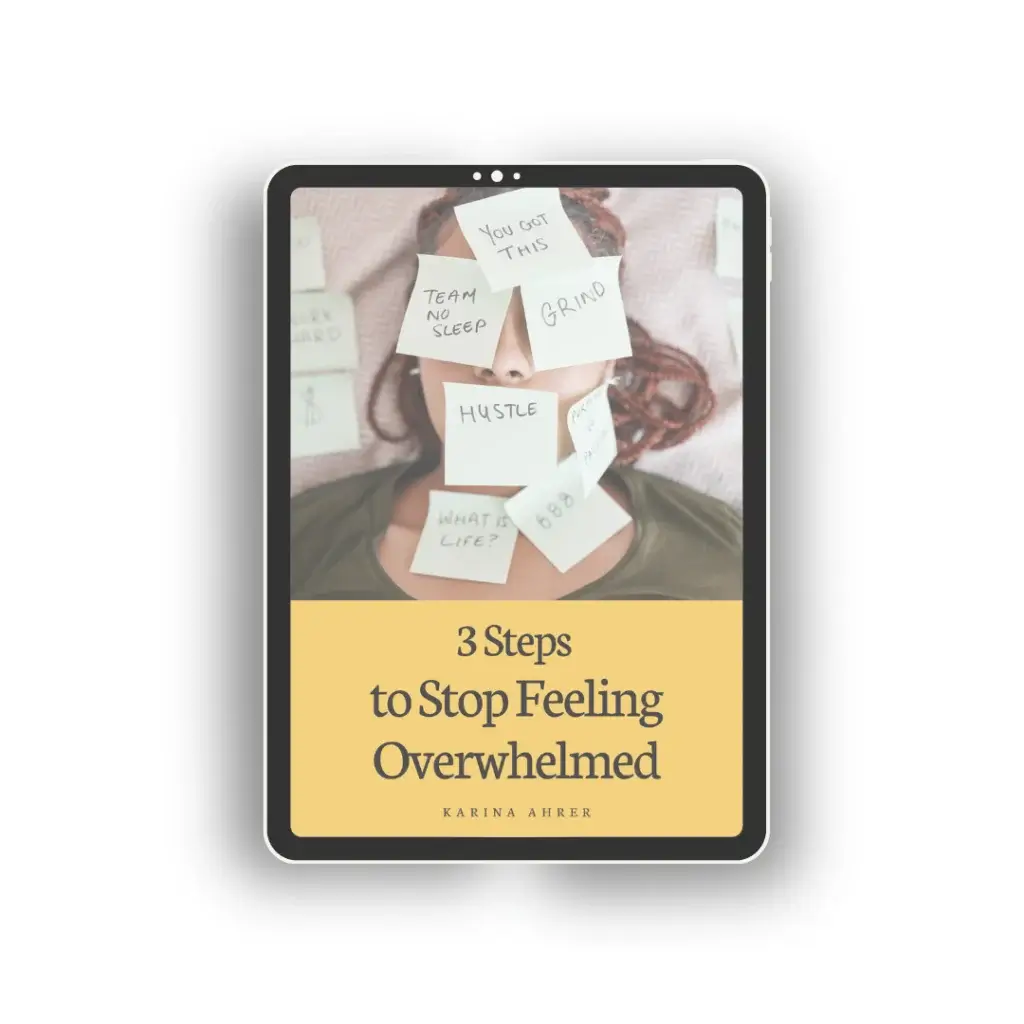How I overcame the feeling of not fitting in
Up to 82% of people have imposter syndrome. That’s what I read recently.
What is it?
According to Wikipedia, it’s the doubt in your skills, talents, or accomplishments. It’s the belief that you don’t deserve your luck or success, and you have the fear of getting exposed as a fraud.
According to me and my experiences, imposter syndrome is a feeling of not deserving the position and success I currently have.
Sometimes you have the feeling that you don’t fit in here and that everyone around is much smarter than you. You have the feeling that you don’t know anything.
I often had the feeling before exams: I studied a lot but right before an exam I feel like I don’t know anything.
The good thing was: that this was never the case, I always had good grades despite the feeling of not knowing anything.
People You Don’t Expect to Have The Imposter Syndrome Too
“I still have a little imposter syndrome… It doesn’t go away, that feeling that you shouldn’t take me that seriously. What do I know? I share that with you because we all have doubts in our abilities, about our power and what that power is.”
— Michelle Obama
Reading that 82% of people have the syndrome changed my perspective of the world.
I always thought that I was one of the only ones who felt that way.
If we speak about our feelings and situations, we usually find people who feel the same way. We are not alone in this world, and feelings are the same everywhere.
Just like Michelle Obama has imposter syndrome, so do I and you.
I’m introverted and as a child, I was told that I could never be successful because I’m quiet. One of the reasons I didn’t speak was the fear of getting exposed that I didn’t know anything.
This is where part of my imposter syndrome is coming from: my environment telling me that I was too quiet to be successful.
But I had the ambition to go out into the world and get the life I wanted.
I’ve challenged myself and I’ve grown to overcome my doubts, and those are the steps I took:
1. Get Your Mind To Believe In Yourself
If you have imposter syndrome, then you don’t believe in yourself.
Let’s change that!
The right mindset and a positive relationship with yourself are a big part of a successful life.
Start with small steps to trick your mind into believing in yourself:
You plan on cleaning the bathroom today and you will do it.
By doing things you plan on doing you tell your mind that you can be trusted with finishing tasks.
Today you will study one topic of your exam. And then do it.
Afterward, you can ask someone to test you by asking questions about the topic and you will see that you know the topic.
Do these steps each day and you will show yourself and your mind you can be trusted and you know things.
“Believe you can and you’re halfway there.”
— Theodore Roosevelt
2. Work Towards Your Goal And Your Dream Life
Think about your dream life:
- How would you describe your perfect day?
- What would you do if this is the last day of your life?
- What would you do if you only had 6 months to live?
Take your time. Mediate. Be creative. Think impossible.
Afterward, think of the next small steps you can take to get closer to your dream life.
By having a goal and working towards it day by day consistently, your mind will see your ambition too, and know that you want it.
You work on yourself and your imposter syndrome will shrink because you experience the hard work you put in and the consistent growth.
“If we’re growing, we’re always going to be out of our comfort zone.”
— John Maxwell
3. Don’t Tell Anyone About It And Don’t Listen To Them
I made the mistake of telling people about my writing online plans.
They don’t get it.
“How do you make money by tweeting every day? You don’t get paid for that.”
“Your English is not good, who would read that?”
People don’t understand you, and they don’t have to.
It’s your dream, it’s your life.
The most important thing: don’t listen to them and their advice.
Your parents don’t know anything about making money online. They have never made money online, so don’t listen to their advice on the topic.
Money is a huge topic these days, and there is also a huge difference between generations on
- how to make money,
- how to save money, and
- how to spend money
Don’t listen to them.
If you want to become rich, then don’t listen to your poor friends who spend a lot of money on cars and iPhones.
Don’t judge them or unfriend them.
Accept different opinions and views and do your own thing.
“Don’t let someone who gave up on their dreams talk you out of going after yours.”
— Zig Ziglar
4. Accept Challenges
What helped me a lot in growing and becoming the person I am today is accepting challenges when they are coming my way.
One example:
I’m an introvert and I would have never said that I wanted to be the head or leader of anything:
- it takes a lot of responsibility
- you have to speak in front of people
- you have to manage a team.
I knew first, I had to grow to be able to achieve what I wanted to achieve, and second, my student organization didn’t have anyone to lead them.
I accepted all the challenges that will come my way and I will improve with them.
I was afraid. I was nervous as f*ck talking to the head of the university.
But that’s how you grow and become successful. By accepting challenges and growing a lot.
Be brave and say yes to tasks that are a little beyond your skillset.
Just do it!
“Whatever makes you uncomfortable is your biggest opportunity for growth.”
— Bryant H. McGill
5. Fake It Till You Make It!
The sentence is not everyone’s favorite but it helped me do tasks I thought I would never be capable of.
Having a presentation in front of the head of the university wasn’t something I imagined was possible a few years ago. I was really nervous and I forgot words and I hated the feeling of everyone’s eyes on me.
There was no going back so I faked some confidence and went all in with my passion for this student organization and just spoke from my heart.
The imposter syndrome is usually about faking it and the fear of getting exposed, but by faking confidence or knowledge you will actually gain experience and knowledge to grow, and then you made it and you know that.
At first, you will feel like a fraud. Accept it and embrace it: give everything to learn and gain the knowledge you should know.
“Acknowledge your fear, understand it, and then get comfortable existing in a space with it.”
— Allie Dattilio
Conclusion
At every new experience, you will have imposter syndrome. That’s okay. Accept it and grow beyond it.
Think of how much you already accomplished in your life. Be proud of that.
Never think of the long way ahead but instead, take a look at the steps you already took in your past to get here.
Be proud of yourself.
Challenge yourself and just do it!
How I was able to study, part-time work, and lead a student organization at the same time and you can too:
Get your free copy of my tips about how to boost your productivity!

Get daily insights, motivation and inspiration:
If you are as addicted as I am to reading books, then check out my list of favorite books and your free Audible month!
Do you live in Austria, Germany, or Switzerland?
You get 60 days of audiobooks for free on BookBeat! A lot of the books from my recommendation list are included!






